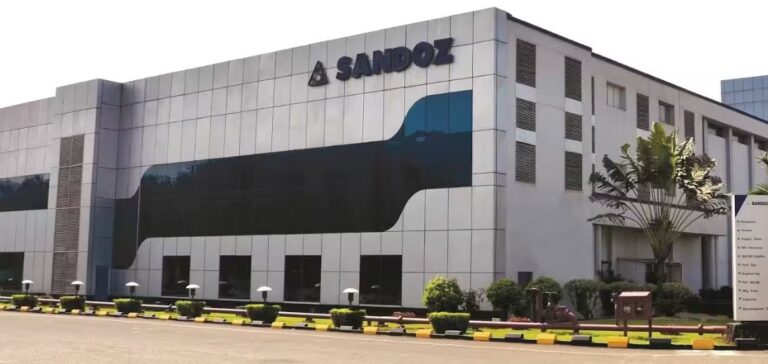Sandoz, a global player in the pharmaceutical sector, now receives 32 GWh of solar-generated electricity a year for its Navi Mumbai production site.
The supply comes from Sunsure Energy’s solar power plant in Solapur, Maharashtra.
The Power Purchase Agreement (PPA) signed between the two companies will enable Sandoz to reduce its CO2 emissions by 26,000 tonnes a year, representing an 11% reduction in direct emissions.
This strategy is in line with the company’s objectives to reduce its carbon footprint in line with the requirements of the Science Based Targets Initiative (SBTi).
Anticipatory procurement and optimized operations
Sunsure Energy is starting to supply solar power almost two months ahead of schedule.
This advance on the schedule demonstrates Sunsure Energy’s ability to optimize the commissioning of its installations and meet the requirements of its industrial customers.
The Navi Mumbai project is one of a series of initiatives aimed at reducing dependence on fossil fuels, responding to the growing demand for sustainable energy solutions in India’s industrial sector.
Shashank Sharma, CEO of Sunsure Energy, points out that this project strengthens the company’s presence in Maharashtra, a region that is proactive in the adoption of renewable energies.
The supply of solar-generated electricity enables Sandoz to stabilize its energy costs and improve management of the risks associated with fluctuations in conventional energy prices.
Renewable energy market trends in India
The renewable energy sector in India is developing rapidly, with increasing interest in direct supply contracts for renewable electricity, as demonstrated by this PPA between Sunsure Energy and Sandoz.
More and more industrial companies are opting for this type of contract to secure an important part of their energy supply, control costs and meet environmental regulations.
Sunsure Energy, backed by a $400 million equity commitment from Partners Group AG, continues to expand its generating capacity, with a target of 5 GW by 2028.
Currently, with 500 MW of assets in operation and 2.5 GW under construction, the company is positioned as a strategic partner for companies seeking to integrate renewable energy into their energy mix.
Impact on industrial energy strategies
Companies, particularly in energy-intensive sectors such as pharmaceuticals, are under increasing pressure to review their energy procurement strategies.
The partnership between Sunsure Energy and Sandoz illustrates this trend, where reducing emissions becomes a lever for optimizing industrial and financial performance.
By reducing its CO2 emissions and stabilizing its energy costs, Sandoz is adapting to new market and stakeholder requirements.
Sunsure Energy’s approach of offering turnkey solutions via long-term PPAs enables manufacturers to achieve their sustainability objectives without requiring high initial investments in energy infrastructure.
This approach is attracting more and more companies looking to mitigate energy supply risks while improving their carbon footprint.






















